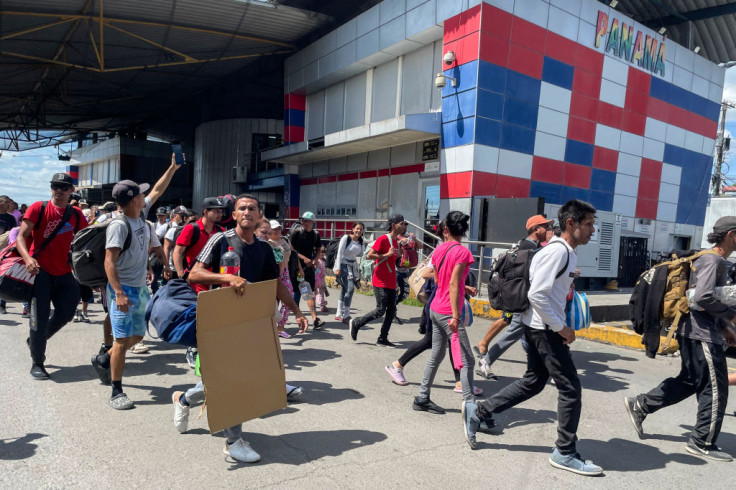
During his first day back in office, President Donald Trump signed a total of 26 executive orders, many of them related to immigration. Among them was the revamping of the CBP One app, a tool used during the Biden administration to help asylum-seekers schedule border entry appointments. On his first day, Trump shut down the app, and in March, he repurposed it into the CBP Home app, designed to facilitate self-deportation and provide other related immigration services.
Upon returning to the White House, Trump also declared a national emergency at the U.S.-Mexico border, setting the stage for the deployment of armed forces to assist immigration agencies in stopping the illegal entry of undocumented migrants, keeping thousands of people seeking for asylum out of the United States.
Since then, thousands of migrants traveling to the U.S. in hopes of a better life have become stranded along the way. According to a recent report by the governments of Colombia, Panama and Costa Rica, more than 14,000 people —the majority of them from Venezuela— have been forced to change course and turn around, with the borders sealed and the chance to seek asylum largely eliminated.
As reported by The Guardian, this phenomenon has come to be known as "reverse flow." It refers to the voluntary or forced movement of migrants back to their home countries, often through self-deportation, repatriation or removal efforts.
Among the thousands who have turned around and started the journey home is Gabriela, a Venezuelan woman who traveled to the U.S. southern border earlier in 2025 with four other family members and her 11-year-old daughter. She was forced to turn back after her visa appointment was canceled on Jan. 20, the day Trump took office.
Gabriela and her daughter fled Venezuela after Nicolás Maduro claimed victory in last year's widely disputed and controversial presidential election. They reached Mexico, where they waited until January, only to have their visa appointments canceled. Gabriela and her daughter, like many others, were forced to turn around and travel back to South America by bus.
As The Guardian's report highlights, lawyers, human rights advocates and government officials warn that reverse flow is proving to be just as dangerous, and in some cases more dangerous, than the original journey north to the United States.
Scott Campbell, a United Nations human rights representative in Colombia, said many migrants caught in reverse flow had already been victims of abuse during their trip north and now face what he called "a repeat gauntlet of abuse on their return to the south."
"Most of these people are already victims of human rights abuses," Campbell told The Guardian. "We urge authorities to aid people in this reverse migration to prevent them from being exploited or falling into trafficking networks run by illegal armed groups."
According to a report published with support from the United Nations High Commissioner for Human Rights, many migrants become stranded in areas with a strong presence of criminal organizations, making them easy targets.
After spending hundreds of dollars on bus travel from Mexico to Central America, many migrants arrive in Panama, where they pay additional high fees to board unsafe boats headed for Colombia. Campbell said some migrants are abandoned along Colombia's Pacific coast or left without money in Panama. "It increases their risk of suffering sexual violence or being recruited by non-state armed groups in Colombia," he said.
As Campbell noted, abuses and crimes committed against migrants in reverse flow often go unpunished, which empowers criminal organizations and leaves migrants even more vulnerable and at their mercy.
Hundreds of migrants making their way back home are ending up in the village of Miramar, located in northern Panama. Abril Staples, a field coordinator for the migrant project at the Panamanian Red Cross, told The Guardian that between 30 and 130 migrants arrive there each day. She said most arrive malnourished, exhausted and without any money to continue their journey.
"People went to chase the American dream, and they are coming back crushed," Staples said.
© 2025 Latin Times. All rights reserved. Do not reproduce without permission.







